North Korea's Military Involvement
The international community is closely monitoring reports that North Korea has sent soldiers to Russia to partake in the ongoing conflict against Ukraine. These revelations have come as a confirmation from Washington, further intensifying the intricate web of geopolitical challenges that this war represents. While the exact number of troops that have been dispatched remains unverified, estimates suggest a figure potentially reaching 12,000. The North's involvement marks a significant development in the already complex dynamics of the region, raising concerns not only about North Korea's motivations but about the broader geopolitical landscape.
From the North Korean perspective, sending military personnel to assist Vladimir Putin's forces appears to serve multiple strategic interests. For Kim Jong Un, aligning with Russia offers a platform to bolster his country's international standing whilst simultaneously confronting their traditional adversaries, primarily the West. At the same time, it provides an avenue for North Korea to showcase its solidarity with one of its few allies, Russia, thereby reinforcing its geopolitical alliances in a climate of mounting international sanctions and isolation.
Geopolitical Implications for China
This latest development puts China in an especially precarious position. As North Korea's closest ally and sponsor, China walks a fine line in maintaining stable relations with the hermetic state while upholding its own international standing. Beijing’s diplomatic efforts to mediate or at least temper the escalating situation are now complicated by Pyongyang's bold move. China's regional strategy largely depends on peaceful coexistence and economic growth; hence, North Korea's belligerent posturing could risk destabilizing regional security, a situation China is keen to avoid.
The deployment heightens the stakes for Beijing, which finds it increasingly challenging to remain mutually cooperative with both Moscow and the broader international community. The nuanced dynamics highlight China's strategic dilemma as it has to reassess its policies towards its unruly neighbor without alienating Russia, a key player in its own geopolitical chessboard. The Chinese leadership is well aware that missteps could trigger unwanted confrontations or economic repercussions from an international community vigilant about Beijing's role in the ongoing conflict.
Global Reactions and Concerns
The news of North Korean troops on Ukrainian soil has naturally raised alarm worldwide. There have been widespread concerns regarding the implications of such involvement in a conflict that already threatens global security. The Ukrainian President, Volodymyr Zelenskyy's acknowledgment of North Korea's 'effective' and 'active' participation underscores the severity of the threat as well as the complexity of the war's evolving landscape.
Diplomatic quarters are now abuzz with speculations about whether North Korea's direct engagement represents a de facto state of war between Pyongyang and Kyiv. Such a scenario presents further escalation risks, particularly as other nations could be drawn into the conflict directly or indirectly. It complicates peace efforts and could potentially lead to heightened military actions involving multiple nations aligning against a common adversary.
Strategic Outcomes and Future Trajectories
The future ramifications of this development are particularly concerning for global peace and stability. The potential involvement of North Korean soldiers introduces new variables to conflict resolution strategies, offering more complexity to negotiators and diplomats. Indeed, it could act as a catalyst for further military actions or defensive measures by Ukraine's allies, potentially escalating to widescale confrontation.
In the broader context, this emergent dynamic holds significant implications for the United Nations and various international bodies engaged in conflict resolution. Pressure might mount for more extensive sanctions against North Korea and perhaps even Russia, depending on unfolding events and collective international responses. Moreover, geopolitical alliances could witness redefinitions, as countries reevaluate their stances in light of new developments.
Implications for North Korea's Political Landscape
For North Korea, the stakes remain high. Kim Jong Un's willingness to involve his military in such a high-stakes international conflict marks a milestone in his regime's foreign policy approach. Domestically, this involvement could be utilized to foster nationalism or increase the military's standing within the nation, even as it risks further isolation on the global stage. The question remains whether this gamble will yield long-term benefits for his regime or expose it to unprecedented challenges.
As the situation unfolds, stakeholders worldwide will be observing closely. The developments mark a pivotal juncture not only in the longstanding tensions surrounding the Ukraine conflict but also in shaping future engagements across the globe. The lessons derived from North Korea's military engagement could inform diplomatic strategies aimed at fostering long-term peace in a region rife with historical and modern complexities.

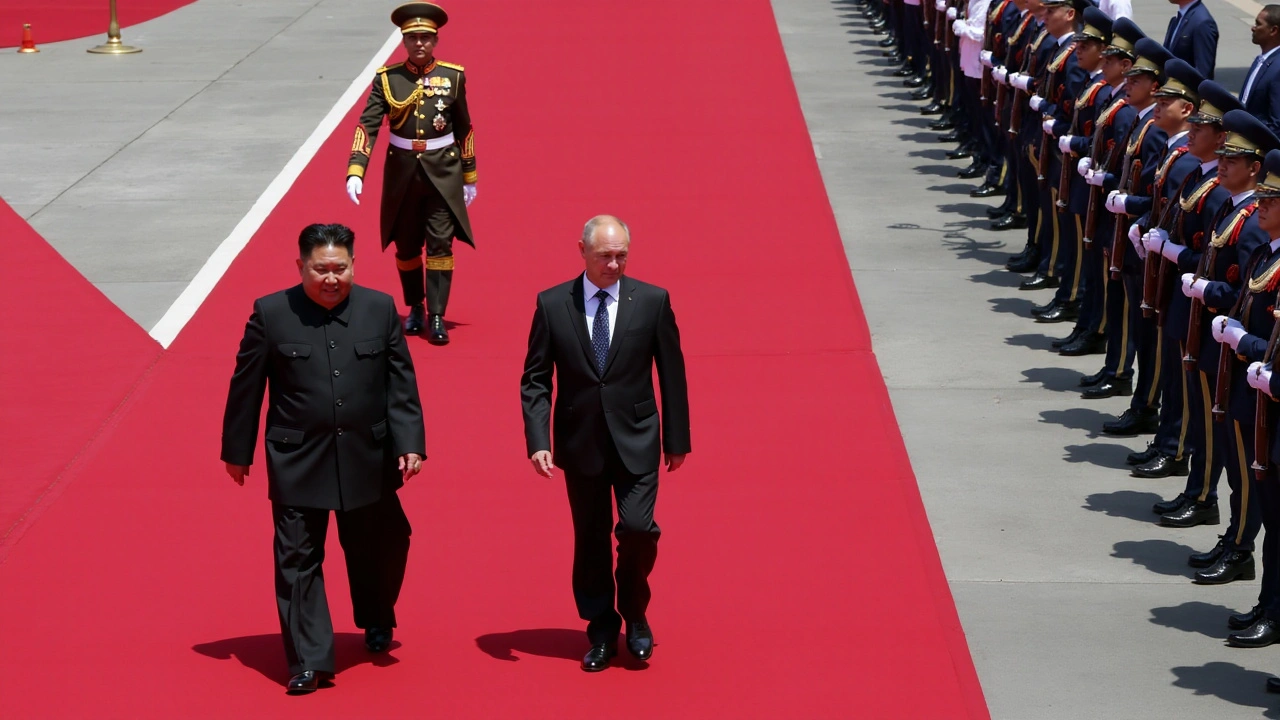


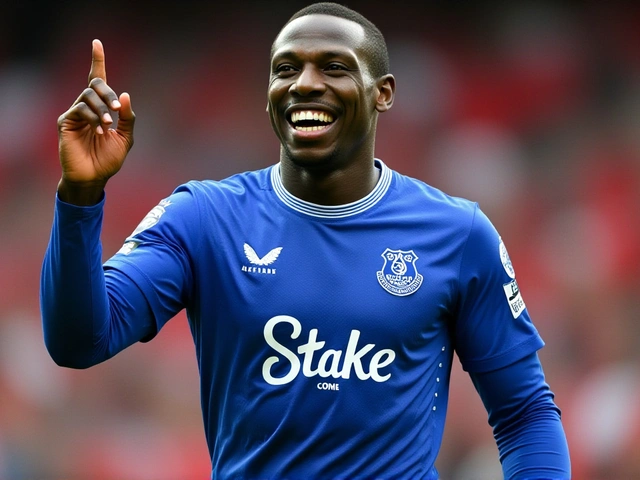
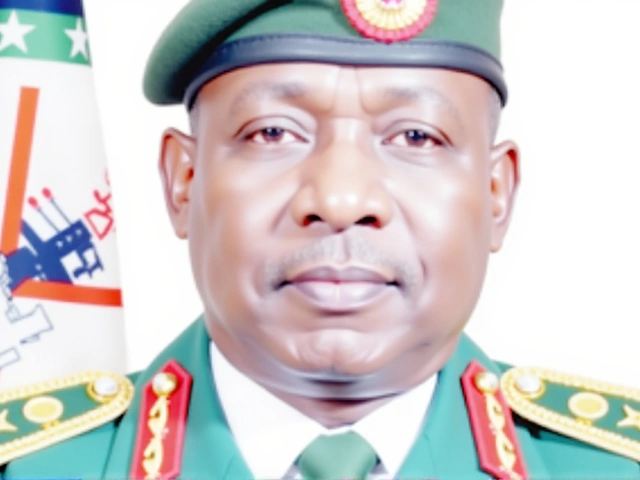
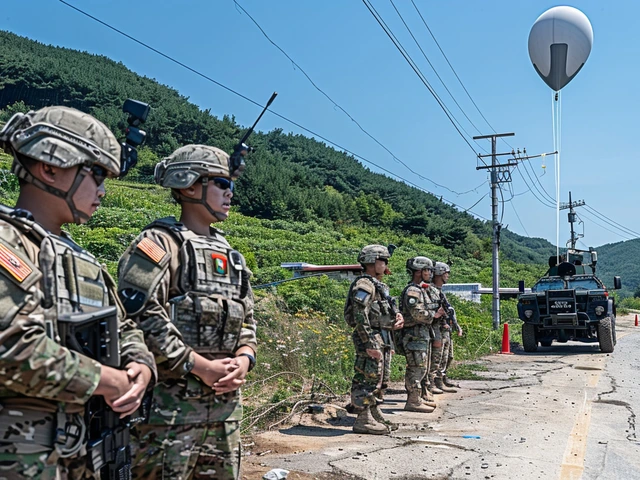
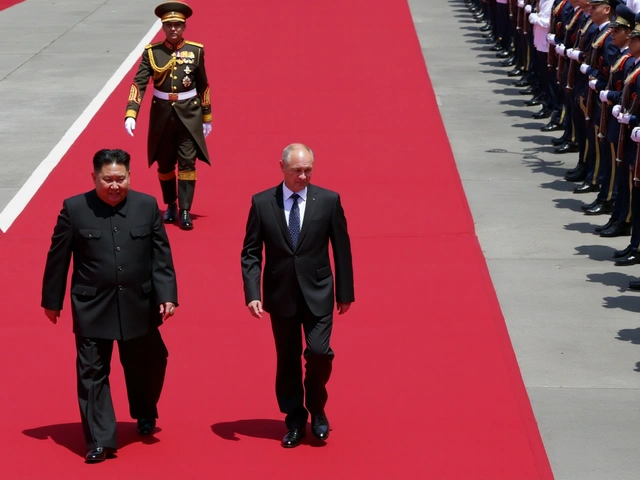
Ashutosh Bilange
October 25, 2024 AT 20:46Wow, the world just got a whole lot more dramatic than a Bollywood blockbuster! North Korea sending troops to Ukraine is like that plot twist nobody saw coming, yet somehow everyone felt it in their gut. You might think Kim Jong Un is just playing a dangerous game of chess, but in reality he's painting a masterpiece of geopolitical bravado, all while the rest of us are left wondering if the canvas will burst into flames. The estimates of 12,000 soldiers are probably low, because you know how these regimes love to understate their meat‑packing. This move, my friend, is not just about supporting Putin; it's about screaming from the rooftops that Pyongyang still has a voice in the global arena, even if that voice sounds like a gruff, muffled scream. By aligning with Russia, Kim is trying to hardcore his image, hoping to get a pat on the back from any country that still dares to talk to him. Meanwhile, the West is sweating bullets, trying to figure out if this is a one‑off salute or the beginning of a new chapter in the era of proxy wars. The stakes? Oh, they’re higher than a kite on a stormy day-regional stability, the balance of power in East Asia, and the very notion that sanctions actually bite. China, sitting on the sidelines, is now forced to juggle its awkward friendship with both Pyongyang and Moscow without tripping over diplomatic landmines, and that, my dear readers, is a tightrope act worthy of Cirque du Soleil. We must also consider the domestic propaganda spin – Kim could use these troops as a rallying point, whipping up nationalism like a chef sprinkling extra chili into a bland stew. But let’s not forget, sending soldiers into a fierce conflict also means exposing them to the brutal realities of modern warfare – a reality that could crack the hardened image the regime tries so hard to maintain. The international community will likely crank up sanctions, but whether that will push North Korea into deeper isolation or force it to double‑down is still a question mark. In the end, this whole saga reads like a high‑stakes poker game where everyone’s betting on a hand they barely understand, and the chips are humanity’s future. So buckle up, because if the past is any indicator, the next move could be even more unpredictable than a cat chasing a laser pointer.
Kaushal Skngh
October 25, 2024 AT 21:03Honestly, this whole thing feels like a mess that could've been avoided if someone just said "no" earlier. It's another example of how small moves cause big ripples, and we can all agree it's not a good look for anyone involved.
Harshit Gupta
October 25, 2024 AT 23:00Look, I'm not here to sugarcoat anything – this is a bold and aggressive step that showcases true national strength. North Korea aligning with Russia proves they aren't afraid to stand up against the Western hegemony, and that should earn some respect. The sheer audacity of deploying thousands of troops, despite global condemnation, demonstrates a commitment to sovereignty that many forget. While some may call it reckless, I see it as a calculated move to shift the balance of power in favor of those who value independence over appeasement. It's a dramatic reminder that the world isn't just a playground for the big powers; smaller nations can still punch above their weight.
HarDeep Randhawa
October 27, 2024 AT 04:33Wow!!! Really??? Are we supposed to believe that this is just another "strategic partnership"??! Honestly, the whole narrative feels like a badly scripted drama, with too many exclamation points and not enough substance!!!
Nivedita Shukla
November 7, 2024 AT 18:20In the grand tapestry of human affairs, the thread of North Korea's involvement weaves a pattern both eerie and profound. One might ask if the echo of ancient empires resonates in the icy winds of Ukraine, or if this is merely a fleeting shadow cast by modern ambition. The reality, perhaps, is a blend of both: a nation seeking identity amidst the cacophony of global voices, while the world watches, waiting for the next stanza of this relentless saga. Is there a lesson hidden in the corridors of power, or are we simply witnessing another chapter in the endless quest for relevance? Time will tell, but the philosophical weight of this moment lingers like a quiet hum in the background of history.
Rahul Chavhan
November 19, 2024 AT 08:06Interesting turn of events, definitely worth keeping an eye on.